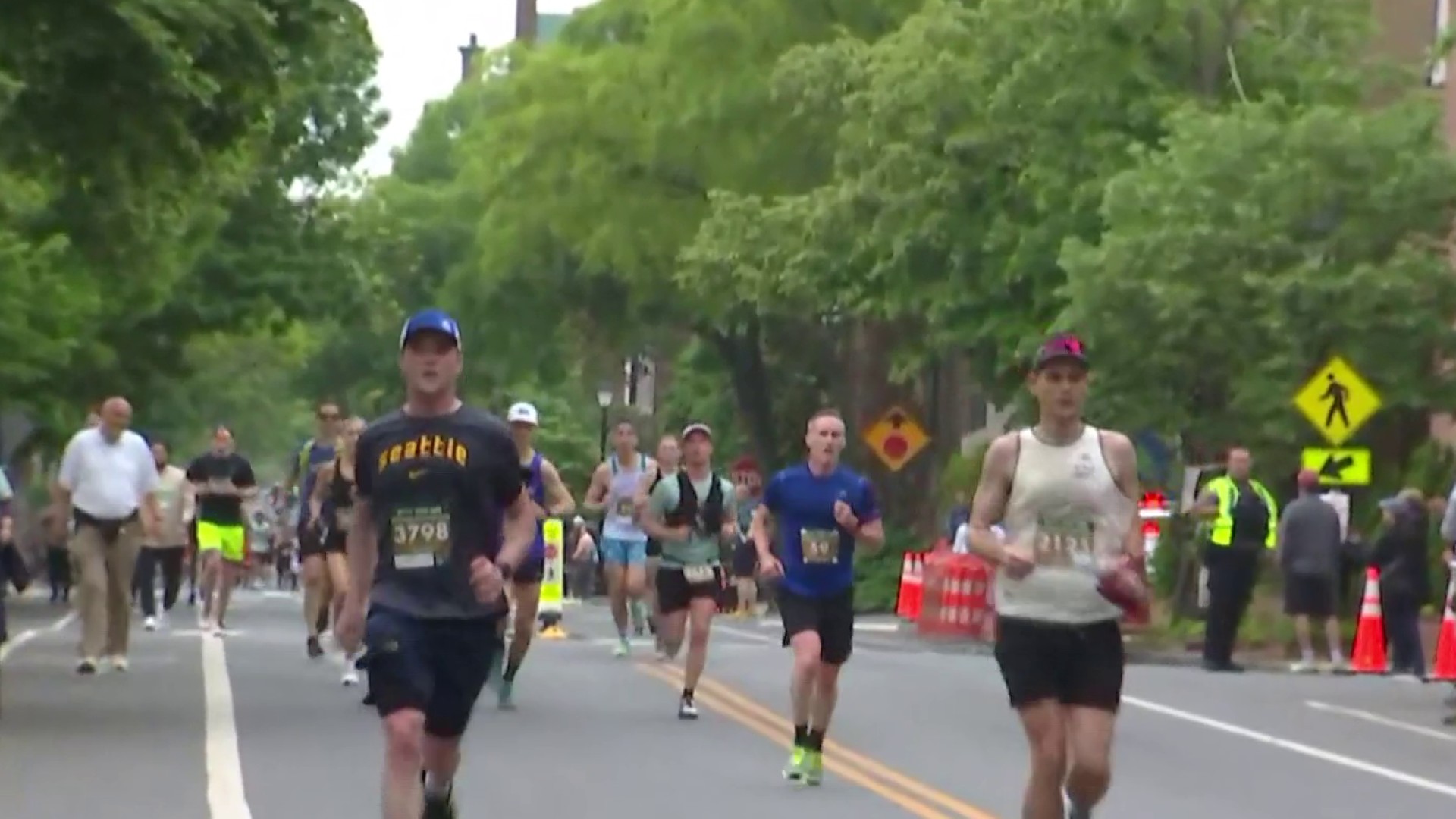The D.C. Council is considering doing away with the exam requirement for certain types of social workers over concerns of racial bias.
Citing a need to fill social worker positions in the District, a bill from Councilman Robert White would eliminate the exam for entry and masters-level licensure applicants, whose work must still be supervised.
The move comes as the nation grapples with a shortage of social workers, but also as scores of social workers decry licensure exams for which data show people of color fail at higher rates than white counterparts.
“What the exam is doing is de-diversifying the profession,” said Catholic University professor Michael Massey, who said for years he's observed too many students of color succeed in class but fail the licensure exam.
We're making it easier for you to find stories that matter with our new newsletter — The 4Front. Sign up here and get news that is important for you to your inbox.
The multiple choice tests, which ask social workers what they'd do in hypothetical scenarios, aren’t made public. But Massey says the exam fails to capture cultural nuances and real world experience and marks some responses as wrong that would be reasonable in practice.
As a result, “We have great social workers of color who came to social work schools to serve their communities, and they're not being allowed to do it despite rigorous preparation at school,” he said.
Others say it’s not the exam – but systemic educational challenges leading up to it – that are the issue, and defend it as necessary to ensure competence in the field.
Local
Washington, D.C., Maryland and Virginia local news, events and information
“It will create an unnecessary risk of harm to the most vulnerable, marginalized residents in the District of Columbia,” said Anniglo Boone, executive director of the Consortium for Child Welfare and head of the Social Workers Unite DC Coalition.
The issue came to a head after the Virginia-based Association of Social Work Boards (ASWB), which for decades has administered exams for multiple levels of licensure, was pushed to release pass rate data.
The results, made public last year, were stark.
Between 2018 and 2021, 76.2% of white test takers passed the bachelor's level exam the first time. The percentage dropped to 63.6% for Native American/Indigenous peoples, followed by 59.6% for Asian test takers and 52.8% of Hispanic applicants.
Only 33% of Black test takers passed – a 43% difference between white test takers.
The organization also released numbers showing how many eventually passed the exam, and while improved, the racial disparities persisted. Data also show older test takers passed at lower rates than younger ones.
"It was very shocking that African Americans have the lowest passage rate,” said Karla Abney, a doctoral student at Catholic who passed the master’s level exam last year to become a licensed graduate social worker. She is also head of the Greater Washington Society for Clinical Social Work.
Abney says passing the exam was “one of the toughest things I've ever done,” but said she isn’t convinced it’s necessary for entry-level social workers.
The exam is just one of the requirements needed for licensure in D.C., in addition to degrees in the field. Abney noted bachelor’s and master’s level licensees typically work under the supervision of more experienced social workers, such as independent clinical social workers, with many eventually taking the exam to practice independently.
“As long as we prepare our social workers [for] independent licensure, I think that's the main thing,” said Abney, who was recently appointed to a Maryland workgroup to study the same issues there.
Classmate Raquel Ruiz – among four Catholic University students interviewed by the I-Team for this story – said of the data, "It's easy to say you could possibly blame the test takers, but I think accountability has to be taken of how the exam is structured.”
D.C. is among the latest to consider the move. Illinois eliminated the master's level test two years ago and saw at least 3,000 social workers licensed the following year, according to the National Association of Social Workers Illinois chapter.
“We will not sort of release unqualified people onto the masses, but this exam is not a proven method of qualification,” White said of his bill.
White says he hopes doing so here will help solve a mental health “crisis” by filling vacancies in schools and social service organizations. His legislation would also create a committee to study licensure requirements for the independent social worker level – those who diagnose and treat mental and behavioral disorders.
“This bill by itself does not solve our problem. It moves us significantly in the right direction,” White said.
But Boone said more research is needed to explain the pass rate disparities before tossing out the exam. She argued D.C. could allow social workers to work with a provisional license while they take the test again.
In a statement the social work board told News4 it “stands by our social work licensing examinations as one part of an overall system that educates, licenses, and regulates the social work profession. These exams serve as uniform, objective measures of social work knowledge and skills, and their development meets industry standards that include multiple layers of anti-bias review.”
The statement continued DC should keep the requirement because "doing so brings legitimacy to our profession."
In a September hearing before the council, the head of the ASWB said it isn’t the test that’s the issue, but systemic challenges facing students of color long beforehand.
“People are bringing a lot into the exam experience and they are not coming to that exam experience with a level playing field,” said Stacey Hardy-Chandler, CEO of the testing board, adding: “The outcomes I think are reflective of these larger societal issues.”
In the statement to News4, the board also said it is researching ways "to address the larger institutional inequities."
But back at Catholic, some students expressed doubt it would be enough.
"I really have to prepare to understand this exam that really wasn't created for someone who looks like me, someone who has a similar background as me,” said graduate student Emely Fortiz, who spoke of the need for more bilingual social workers in the District.
Sarah-Ann Nestor, who hopes to work in D.C. after securing licensure, said the pass rate data has given her pause.
“Having that on my back … is nerve-racking," she said.
In a statement, the National Association of Social Workers noted it supported similar legislation in Illinois and called the exam flawed and biased. It also said it's working to address the shortage of social workers by proposing an interstate licensing compact that would allow clinical social workers to work across state lines.
The Council has not yet set a date for voting on the measure.
This story was reported by Ted Oberg, produced by Katie Leslie, and shot and edited by Steve Jones. NBC4 photographer Carlos Olazagasti contributed to this report.



